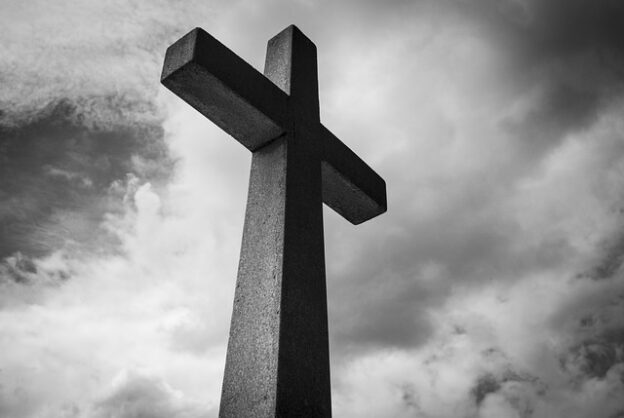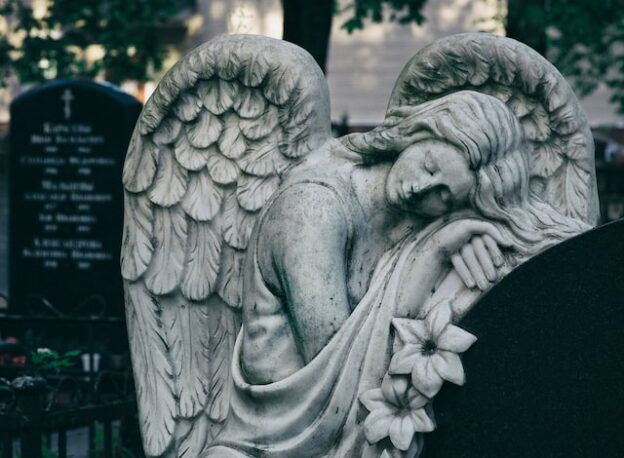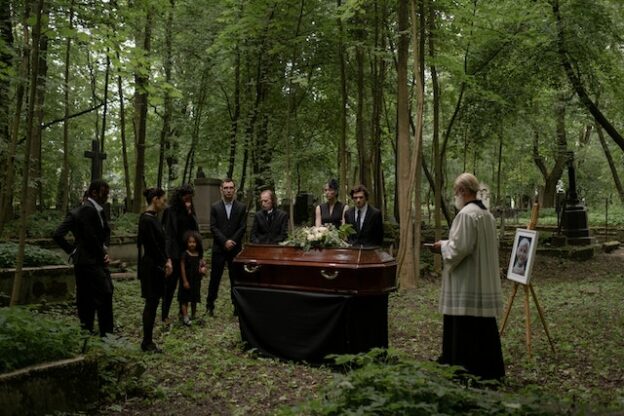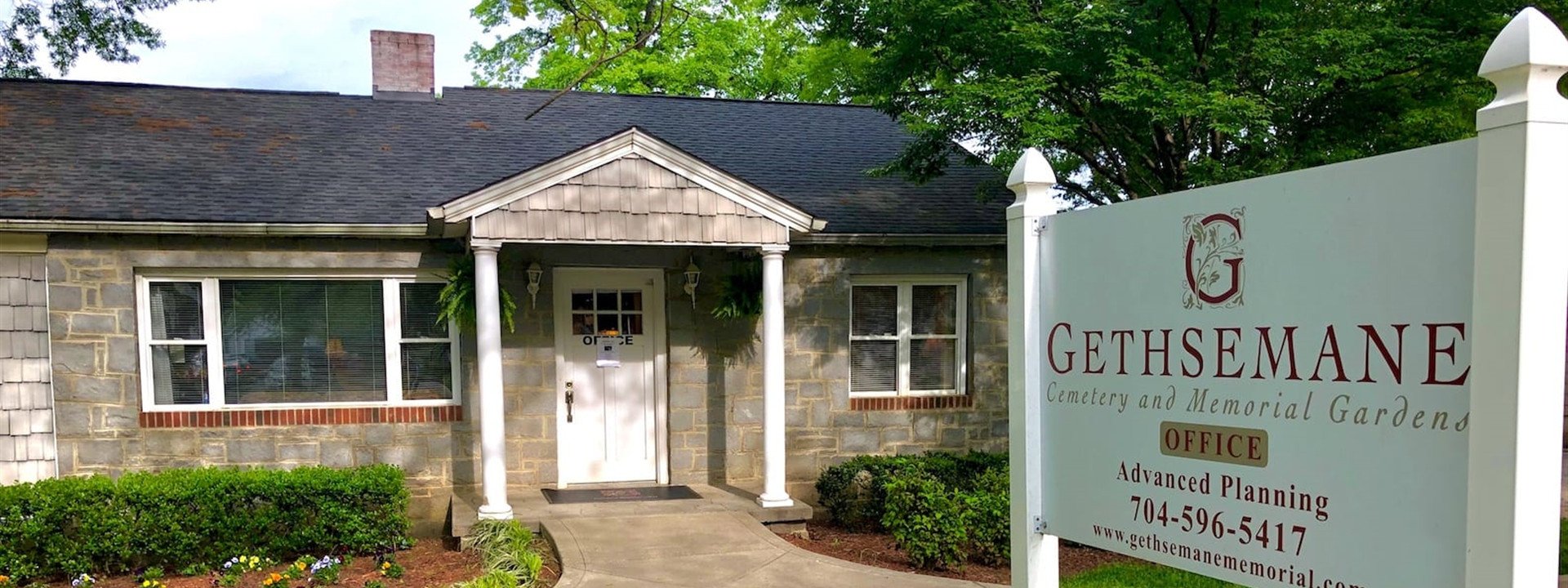Monthly Archives: December 2022

Types of Grief You Might See at a Cemetery
We all mourn in different ways, for different reasons, and for different periods of time. But there are certain types of grief that are common after a loss and a service at a cemetery in Huntersville, NC. Professionals identify types of grief to give people a better understanding of their feelings and actions so they can better heal and move forward. Here are some of the most common types of grief:
- Traumatic – This type of grief is common after the sudden loss of a loved one as this type of unexpected death can be considered traumatic for most people.
- Chronic – As the name denotes, chronic grief is long lasting. While most people mourn for years after a loss, those with chronic grief have debilitating symptoms for long periods of time.
- Inhibited – This type of grief is feelings of loss that manifest as physical ailments like muscle aches, headaches, stomach pain, or other issues.
- Complicated – Complicated grief is best characterized by grief that worsens over time. While it might start out simple, it deepens as the months pass into a disabling and sometimes life-changing feeling.
- Anticipatory – Anticipatory grief is what you feel when you know a loved one is going to die but they haven’t passed yet, such as when they’re suffering from a terminal illness.
- Disenfranchised – This type of grief comes when you lose a relationship that’s considered outside the normal family structure or outside the normal definition of recognized relationships. Sometimes called hidden grief, disenfranchised grief is common after an abortion, the loss of a pet, or even the death of a casual friend.
- Exaggerated – For many, exaggerated grief starts normal but grows in intensity as time passes, often leading to anger, self-harm, and other destructive feelings or actions.
- Distorted – Distorted grief is characterized by feelings of anger and guilt instead of common feelings of loss and sadness. For example, a parent who feels angry after the loss of a child.

- Collective – Collective grief is a loss felt by a large group of people, such as when a celebrity dies or there’s a tragedy like 9-11 or the COVID-19 pandemic.
- Abbreviated –Most common after the loss of someone that you weren’t particularly close with, abbreviated grief is when the grief is short but real.
- Cumulative – Cumulative grief is when a new loss brings back feelings of grief from a previous loss, such as another death, a move, or even the loss of a job, and those feelings compound one another.
- Absent – Absent grief is when you show few or even no signs of grief. Sometimes used as a defense mechanism, absent grief is easy to write off. But it’s important to remember that there’s no way to tell from the outside how someone is truly feeling.
- Delayed – Delayed grief, like the name denotes, is when grief is postponed for a period of time because you haven’t accepted the loss, you feel like you can’t feel the loss, or another reason for putting off your feelings.
We are here to help if you want more information on loss, grief, or Huntersville, NC cemeteries. Call or visit us today to learn more.

Funeral Donations for Cemetery Burials
A funeral donation is money collected to pay for expenses for funerals or other services held at or cemeteries in Charlotte, NC. This collection is not to be confused with memorial donations, which are when the family asks for donations to a charity in the deceased’s name. Funeral donations are an excellent way to ensure your lost loved one gets the service they deserve. Here is some helpful information on funeral donations:
- How Do You Ask for Donations? Asking for donations of any kind can be tough. To help, here are a few wording ideas that will inspire your own ask on whatever platform you choose: “We were simply not prepared for the cost of a funeral service. Any donation size is helpful as we try to give him the simple yet beautiful funeral he deserves.” “In lieu of flowers, the family asks donations be made to the funeral home to help cover costs.” “Many of you have asked how you can help my family during this very difficult time. We appreciate your consideration. We would also appreciate contributions to help pay for funeral expenses.” “The family asks those who wish to express sympathy to consider a donation to help with funeral costs.”
- Do You Need to Be Related to the Deceased to Create a Campaign? No, anyone can set up a campaign for funeral donations.
- How Much do Campaigns Cost? Even the “free” funeral donation platforms have fees, including credit card processing fees and service fees that range between 3% and 5%. For example, for every $100 you raise on one of those platforms, they would take approximately $3 in fees and leave you with $97.
- How Much Should You Give? The traditional gift is the amount you would have spent on flowers for the service, generally between $50 and $100.
- Should You Give Money at the Funeral? You can! Simply place a check or cash in an envelope or card and leave it with the funeral director. You can also give the bereaved a digital gift through a payment app like Venmo or Zelle.

- Who Should You Make the Check to? Make the check out to the next of kin.
- How Do You Set Up Donations? While you can set up a donation anywhere or in any way you choose, there are two popular platforms used for funeral donations: Ever Loved and Go Fund Me. Ever Loved lets you create free memorial websites to both honor your loved one and ask for donations as needed. You can also set up funeral or memorial information so guests can RSVP and post memories of the deceased or condolences. Go Fund Me is a general crowdfunding platform that doesn’t specifically cater to funeral donations. However, it’s still a wonderful way to share your need and help others fill your need.
Funeral donations help the bereaved with costs associated with a service, from cremation and urns to burial, wakes and more. We are here to help if you want to learn more about funeral donations, burials, or other Charlotte, NC cemeteries.

Body Donation Before Cemetery Burial
Body donation saves and improves lives all over the world every single day. Body donation is a common choice for before burial in a cemetery in Matthews, NC. Want to learn more about body donation?
There are several ways to donate your body. The first is organ donation, which is when someone donates their organs like heart, lungs, kidneys, or liver for transplant. Organ donation, depending on the organ being donated, can be performed when the donator is alive or deceased. If the donator is deceased, the organs must be removed immediately after death in order to remain viable. There is also tissue donation, when a deceased person donates body tissue such as skin, heart valves, ligaments, bones, veins, or corneas. The final most common type is full-body donation, or when a deceased person donates their entire body to science like a medical or scientific program for research. Body donation, no matter the type, is a noble, important act.
Here are answers to some of the most commonly asked questions:
- Are there extra funeral costs for being an organ donor? More work goes into preparing a donor’s body. However, most funeral homes do not charge extra out of respect for the deceased’s choice to save or benefit others through donation.
- Can organ donors have an open casket? Depending on the type of donation, the deceased can still have an open casket. Funeral homes can hide any signs of donation, embalm, dress, and place the body in a casket.
- How long does organ donation take? Depending on which organs are recovered, the procedure can range anywhere from four to six hours in length as the doctors must remove the organs as quickly as possible to keep them viable for transplantation.
- Can you still have a funeral if you donate your organs? Yes! Body donation, whether organ or tissue, often has little to no effect on your funeral service plans. This is especially true if you plan to have a closed casket or choose to be cremated

- How long do organs last after death? Harvesting organs or tissues is generally done within the first 24 hours after a death, but the sooner the better to maintain viability.
- Will organ donation delay the funeral? On average, funeral or memorial services take place about a week after a death. Therefore, organ donation is easily performed long before any service takes place.
- Do organ donors get free cremation? Usually, no. After the medical professional completes the necessary donation procedures, they will call the funeral home to come pick up the body and perform the chosen final disposition. However, free cremation is generally included in full-body donation.
- Can I still be cremated if I’m an organ donor? The organ or body donation process does not have any effect on cremation.
We are here to help if you want to learn more about body donation or Matthews, NC cemeteries. We are here to help, so please call or visit us today for more information on us and our services.

What Happens if You Can’t Pay for a Cemetery Service?
Cemetery services like funerals and memorials don’t have to be extravagant or expensive, but they do cost money. What do you do if you can’t afford a service at a cemetery in Huntersville, NC? Here are answers to common questions surrounding paying for funerals, cremations, and other services:
- What happens if you refuse to pay for a funeral? The funeral home is not obligated to take custody of a body. If a family does not or will not pay, the funeral home does not have to accept the body. If the funeral home already has custody of the body and the family refuses to pay, the funeral home will pause all funeral services and planning, store the body in the cooler, and charge the family a storage fee for every day the body is there. The funeral home as the right to refuse services and can transfer the body to the state at any time, but they cannot hold a body hostage in order to get payment.
- Do you have to have a funeral? You’re not required to have a funeral. So, if you can’t afford one, you don’t have to worry. You’re more than welcome to select a direct burial or direct cremation option (the most affordable final disposition services) in order to save money. But if you want to have a funeral or service, there are ways to do so without spending too much money.
- Are there free cremations or burials? If you cannot afford a burial or cremation, you can sign a form with the county coroner’s office and the state will bury or cremate the body for you. This will be at no cost, but you won’t have any say in where or how.
- How do you pay for a funeral with little or no money? There are many ways to cover funeral expenses, including low-cost options and fund raising.
- Is body donation free? Donating a body to research does result in a no-cost cremation. You can donate your body to science through institutions like medical laboratories, medical schools, and local hospitals.
- Are there government bodies that help with funeral costs? There are several government organizations that can help with final disposition and funeral costs including Social Security, State Department of Health, Veteran’s Affairs, and even FEMA if the deceased died in a natural disaster.

- Can you get a funeral loan? Anyone can apply for a funeral loan to get help paying for funeral expenses. They are generally available through credit unions, banks, and online lenders.
- Who pays for the funeral if the deceased has no money? If there isn’t any money in the deceased’s estate, the next-of-kin traditionally pays for funeral expenses. If the next-of-kin aren’t able or don’t want to pay, there won’t be a funeral.
Paying for a Huntersville, NC cemetery service can be worrying, but it doesn’t have to be. Take time now to preplan for your eventual passing, including how your loved ones will pay for your services. We are here to help if you would like to learn more about preplanning or dealing with a recent loss.

